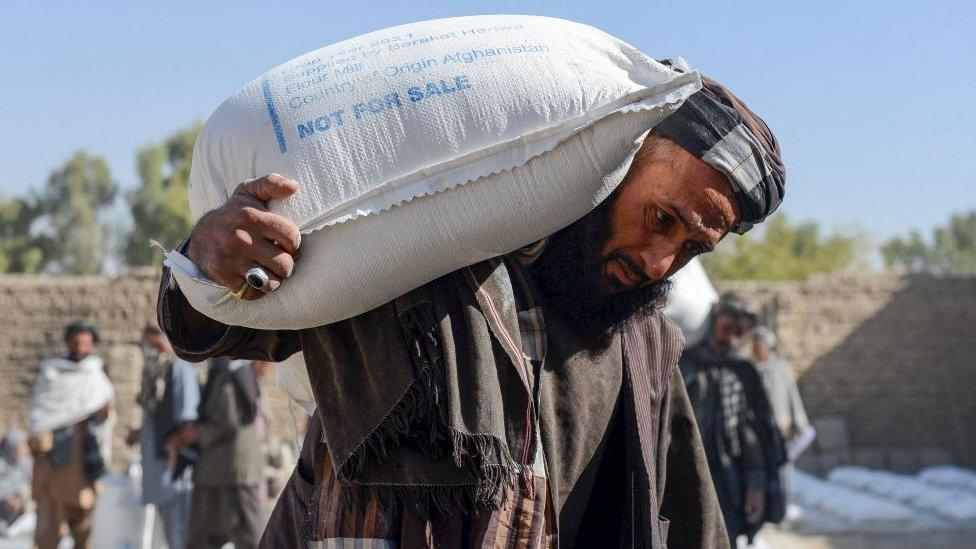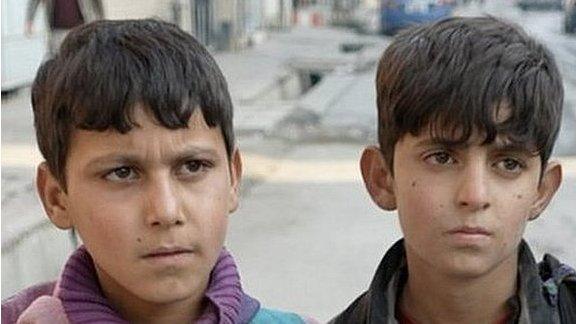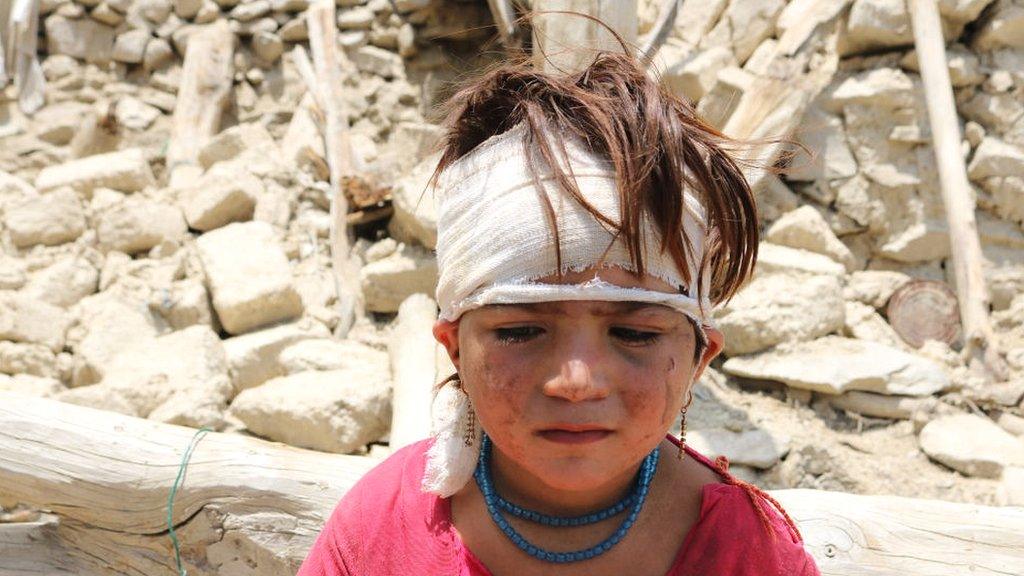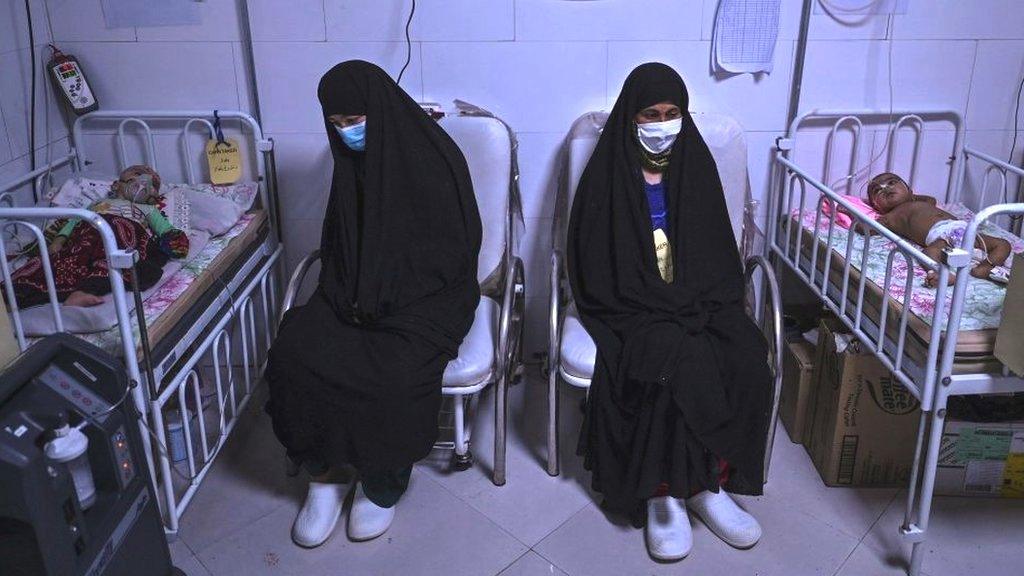Afghanistan crisis: Taliban expands 'food for work' programme
- Published

The Taliban has said it is expanding its "food for work" programme, in which donated wheat is used to pay tens of thousands of public sector workers.
It comes as the United Nations (UN) has appealed for $4.4bn (£3.2bn) in humanitarian aid for Afghanistan.
The UN says the funds are needed this year as more than half the country's population is in need.
Afghanistan's economic and humanitarian crisis has deepened since the Taliban took control in August.
The Taliban's latest announcement underlined the financial crisis engulfing the country.
It could also raise questions among donors over the Taliban using humanitarian aid to fund their government, even as strict rules remain in place over money going into Afghanistan.
Still, some humanitarian aid has continued after the Taliban takeover as foreign governments attempt to prevent millions of people from starving.
However, the aid is meant to bypass the Afghan government and is mostly distributed by international organisations.
Now, wheat which was mostly donated by India to the previous US-backed Afghan government is being used by the Taliban to pay around 40,000 workers 10kg of wheat a day, the country's agriculture officials said.
The programme, which had mostly been used to pay labourers in the capital Kabul, will be expanded around the country, they added.
The Taliban has already taken delivery of 18 tonnes of wheat from Pakistan with a promise of another 37 tonnes and is in talks with India over 55 tonnes more, according to Fazel Bari Fazli, the deputy minister of administration and finance at Afghanistan's Ministry of Agriculture.
He did not say how much of the newly-donated wheat may be used to pay workers and how much would be distributed as humanitarian aid.
In recent months, the country's finances have been hit hard by a number of major issues such as sanctions being placed on members of the Taliban, the central bank's assets being frozen, and the suspension of foreign aid, which until last year supported the economy.
Also on Tuesday, the UN launched an appeal for $4.4bn of humanitarian aid for Afghanistan.
"We go into 2022 with unprecedented levels of need amongst ordinary women, men and children of Afghanistan. 24.4 million people are in humanitarian need - more than half the population," the UN Office for the Coordination of Humanitarian Affairs said, external.
The UN highlighted that, on top of a series of crises the country has suffered, Afghanistan is now in the midst of one of its worst droughts in decades.
Meanwhile, the Biden administration said it would provide another $308m in humanitarian assistance to the people of Afghanistan.
It brings the total amount of US aid for Afghanistan and Afghan refugees in the region to almost $782m since October.
The White House said the aid was aimed to alleviate suffering caused by the pandemic as well as "drought, malnutrition, and the winter season".
Quentin Sommerville reports on the worsening food crisis in Afghanistan as winter starts to bite
Related topics
- Published29 December 2021

- Published8 July 2022

- Published15 December 2021
